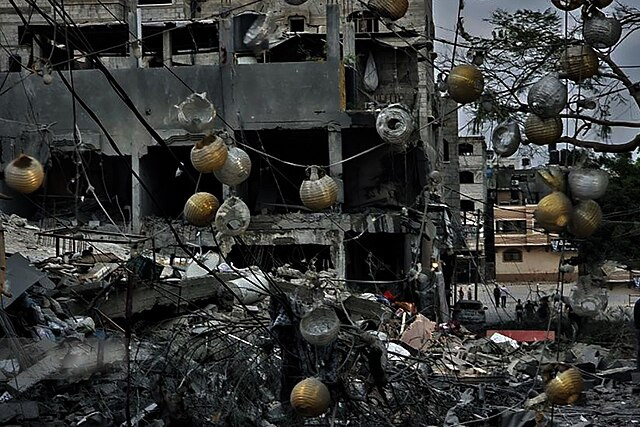The United Nations human rights office has raised the possibility that both Israeli forces and Palestinian armed groups may have committed war crimes during a recent Israeli operation in Gaza. The operation, aimed at freeing four hostages, took place in the densely populated Nuseirat area and resulted in the deaths of over 270 Palestinians, according to Gaza health officials.
The raid, conducted on Saturday, has drawn sharp criticism from various quarters, including the UN. Jeremy Laurence, spokesperson for the UN human rights office, emphasized concerns about the conduct of the Israeli forces, questioning whether the principles of distinction, proportionality, and precaution under the laws of war were adhered to during the operation. Laurence pointed out that the raid's location in a heavily populated area increased the likelihood of civilian casualties, thereby raising serious legal and ethical questions.
"The manner in which the raid was conducted in such a densely populated area seriously calls into question whether the principles of distinction, proportionality and precaution-as set out under the laws of war-were respected by the Israeli forces," Laurence stated.
In addition to critiquing Israeli actions, Laurence also highlighted the responsibility of Palestinian armed groups for endangering civilians. He noted that by holding hostages in densely populated areas, these groups not only put the lives of the hostages at risk but also jeopardized the safety of nearby civilians. "The holding of hostages in such densely populated areas by Palestinian armed groups was putting the lives of Palestinian civilians, as well as the hostages themselves, at added risk from the hostilities," he added.
The raid has sparked intense debate and condemnation, with the Israeli Permanent Mission to the United Nations in Geneva accusing the UN High Commissioner for Human Rights of slandering Israel. The mission defended Israel's actions, asserting that the high civilian toll was primarily due to Hamas's strategy of using human shields.
"The toll of this war on civilians is first and foremost the product of Hamas's deliberate strategy to maximize civilian harm," the Israeli mission responded.
The conflict in Gaza, which has now been raging for eight months, began on October 7 when Hamas fighters launched a surprise attack into southern Israel, killing approximately 1,200 people and taking around 250 hostages. In response, Israel initiated a massive military campaign in Gaza, which has resulted in the deaths of over 37,000 Palestinians, according to health authorities in the Hamas-controlled enclave. The ongoing hostilities have also severely disrupted the supply of food, medicine, and other essential supplies, pushing over a million people in Gaza towards severe starvation, according to UN agencies.
The recent Israeli raid succeeded in freeing four hostages but at a significant human cost. Laurence acknowledged the positive outcome of the hostages' release but underscored the broader humanitarian implications. "The fact that four hostages are now free is clearly very good news. These hostages should never have been taken in the first place. That's a breach of international humanitarian law. They must be freed. All of them. Promptly."
The United Nations has consistently called for the immediate and unconditional release of all hostages, emphasizing that their capture and detention constitute a violation of international law.




